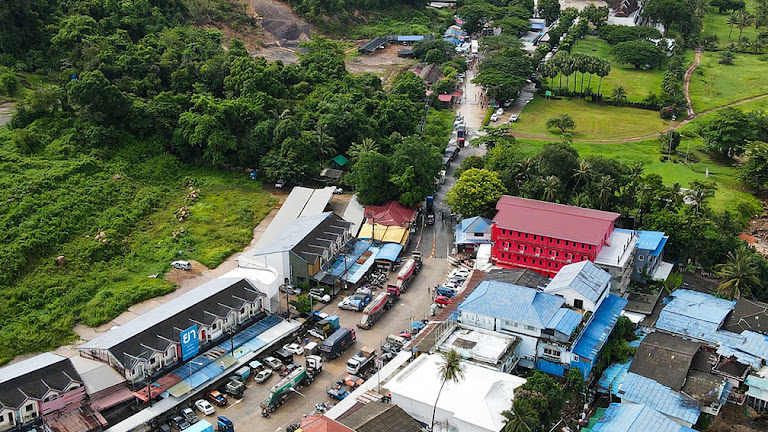Thailand Vows to Cut Power to Cambodia Scam Operations
Visa restrictions and anti-scam efforts intensify as Thailand plans to cut power to online criminal operations near the border.

The situation along the Thai-Cambodia border presents a microcosm of the complex interplay between geopolitics, economic pressures, and the ever-evolving landscape of transnational crime. While both nations publicly express optimism about upcoming talks, a closer look reveals a delicate dance of reciprocal actions and escalating measures, reflecting deep-seated concerns about security and sovereignty.
The immediate trigger for this latest round of tension appears to be Cambodia’s decision to reduce visa duration for Thai citizens. Thailand has responded in kind, reducing visa duration for Cambodians to seven days, as reported by Khaosod English. This tit-for-tat visa policy is only the surface. Underneath lies a more pressing issue: the proliferation of online scamming operations and human trafficking along the border. Thailand’s response is multifaceted, pairing diplomatic gestures with a heavy-handed approach towards these criminal enterprises.
Thailand’s plan to cut electricity and internet to gambling and scammer operations signals a decisive, if blunt, tactic. This approach highlights the challenges of balancing national security with the economic realities of border regions, where such operations, while illicit, may provide income for local communities. The move also underscores the limitations of purely bilateral solutions, as these criminal networks often involve actors from multiple countries and exploit legal loopholes across jurisdictions.
The situation is further complicated by the ongoing efforts at diplomatic engagement. Despite the escalating measures, Thai officials are expressing optimism about the upcoming Thailand-Cambodia Joint Border Committee (JBC) meeting. They point to joint surveys and troop repositioning as evidence of Cambodia’s sincerity in reducing tensions, as mentioned in this article.
However, this apparent cooperation should be viewed with a degree of skepticism. The simultaneous escalation of anti-scammer measures suggests a lack of trust and a sense that diplomatic channels alone are insufficient to address the underlying problems. We are witnessing a dynamic where diplomatic platitudes are juxtaposed with unilateral actions designed to address immediate security concerns.
Here’s a breakdown of the key elements in play:
- Reciprocal Visa Restrictions: A reactive measure reflecting strained diplomatic relations.
- Anti-Scammer Operations: A focused effort to disrupt transnational criminal networks, potentially with significant economic impact.
- Diplomatic Engagement: Ongoing attempts to foster cooperation and reduce tensions through established bilateral mechanisms.
- Border Security Concerns: Underlying anxieties about the movement of people, goods, and illicit activities across the border.
- Regional Stability: The wider implications for Southeast Asian security and economic cooperation.
This is not simply a border dispute; it’s a reflection of how states grapple with the blurred lines between security, sovereignty, and the increasingly digital nature of transnational crime. The effectiveness of Thailand’s approach will depend not only on its ability to disrupt these operations but also on its willingness to engage in deeper, more systemic reforms that address the root causes of these issues, including poverty, corruption, and the lack of economic opportunities in border regions.
Looking ahead, the success of the JBC meeting and future bilateral engagements will hinge on the willingness of both Thailand and Cambodia to move beyond symbolic gestures and address the underlying systemic issues driving these tensions. The story of “Mali,” the Cambodian woman taking her son to a Thai school near the border, as reported here, serves as a potent reminder of the human cost of these geopolitical complexities and the need for solutions that prioritize the well-being of communities on both sides of the border.









